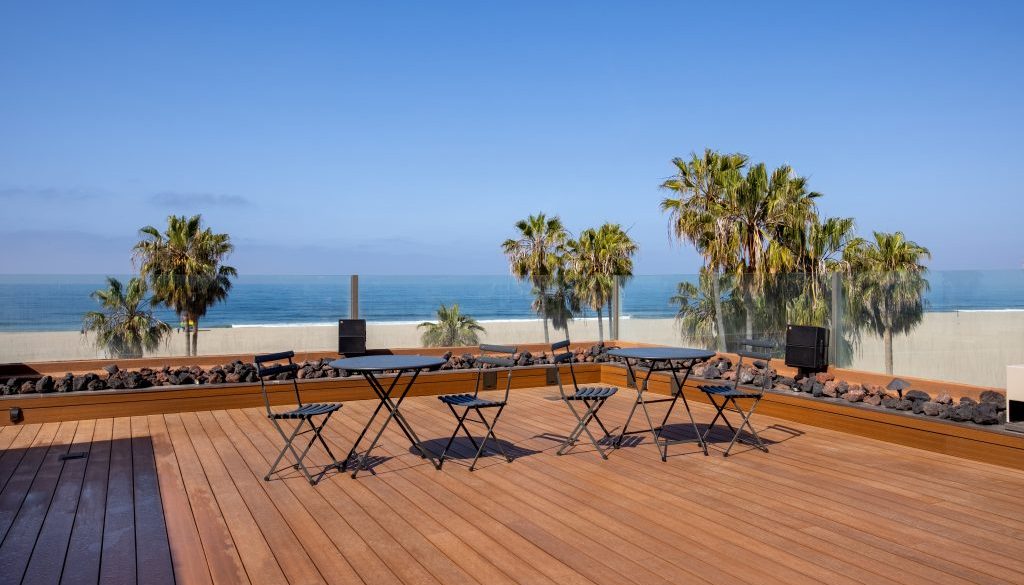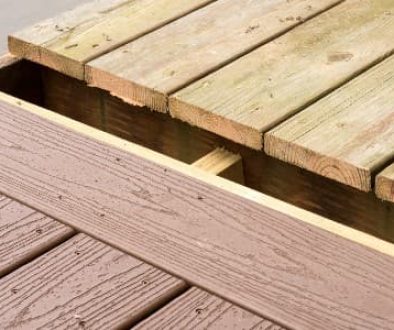PVC vs Composite Decking: Which is the Better Choice for Your Project?
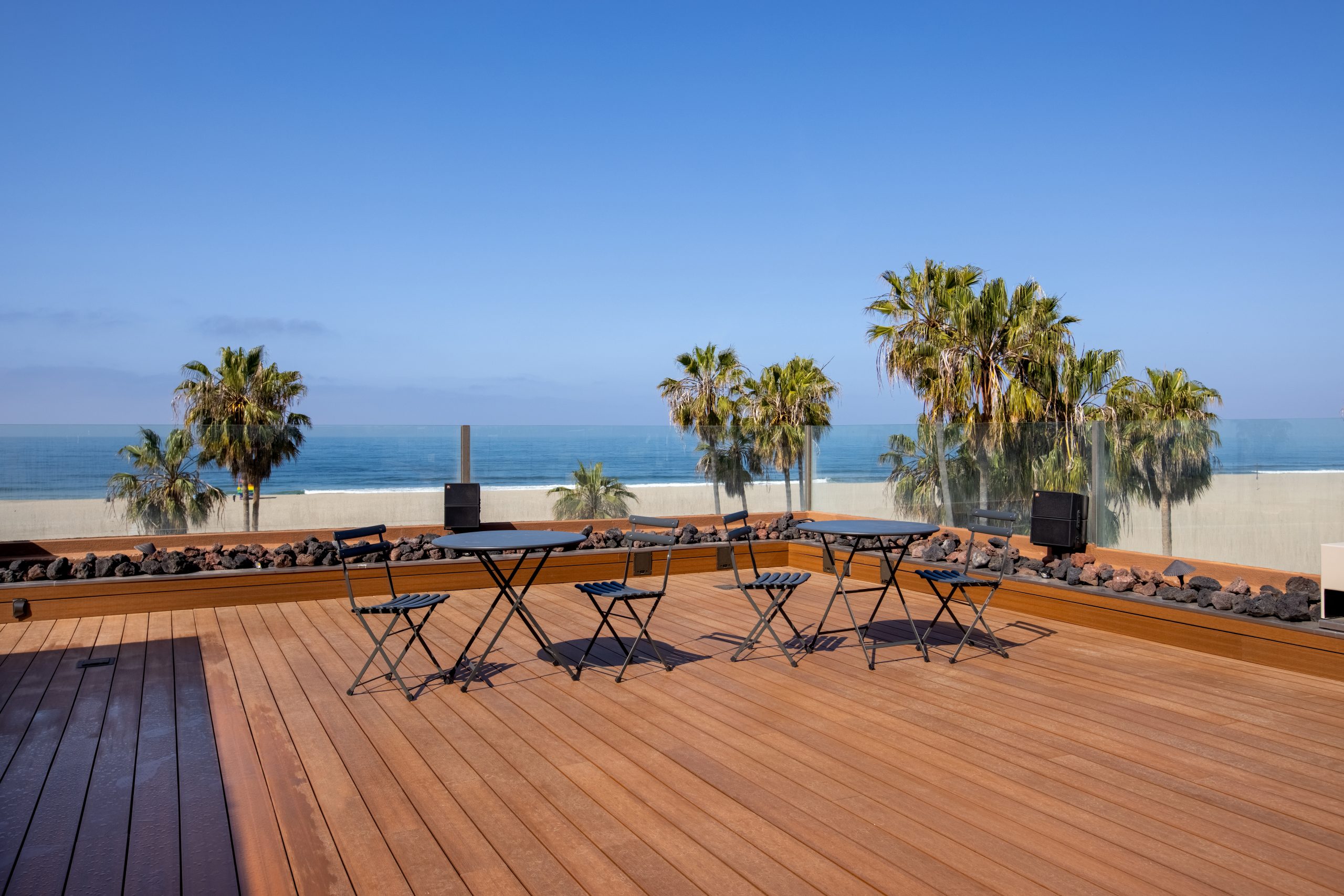
PVC vs Composite Decking: Which is the Better Choice for Your Project?
Are you planning a new decking project? Over the years, different options have surged into the market. Two of them, PVC and composite decking, have excelled for their many advantages over traditional wood. This article will explain the differences between PVC vs composite decking to help homeowners, contractors, and designers make a more informed decision.
Introduction to PVC and Composite Decking
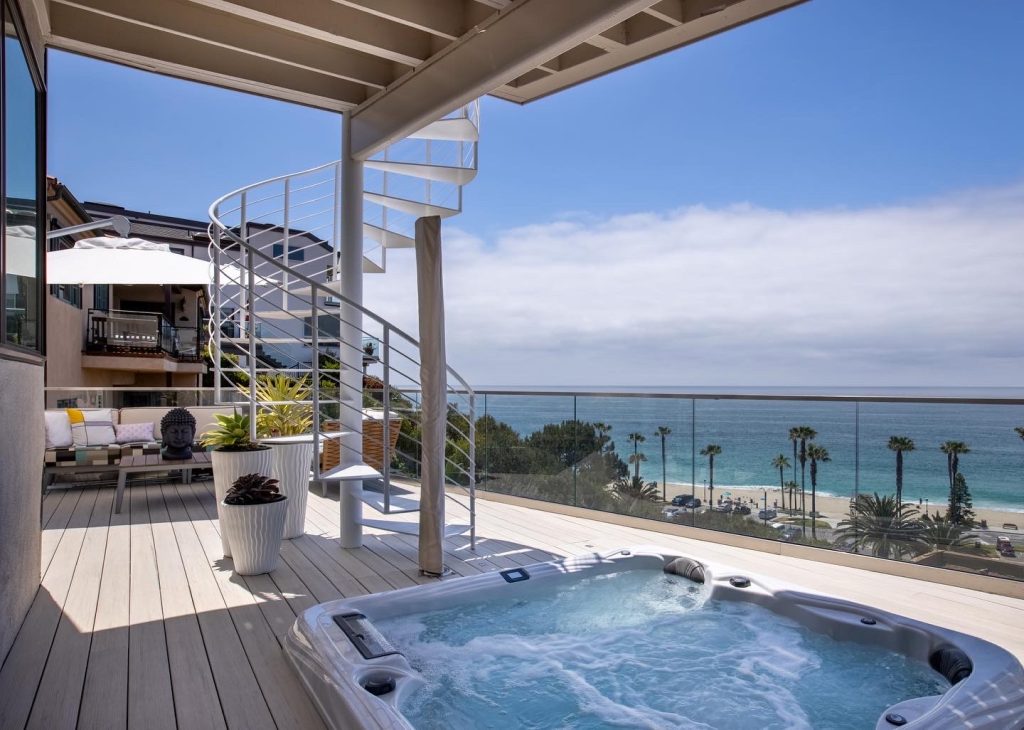
PVC (polyvinyl chloride) and composite decking have gained popularity for being long-lasting and low-maintenance materials. These materials do not deteriorate like traditional wood, and can resist rot, fading, and damage from weather conditions, making them ideal for outdoor projects. The increasing use of these materials can be traced back to improved manufacturing methods that have made these tiles more durable and eye-catching.
Traditional Wood vs. Tropical Hardwoods Clarification
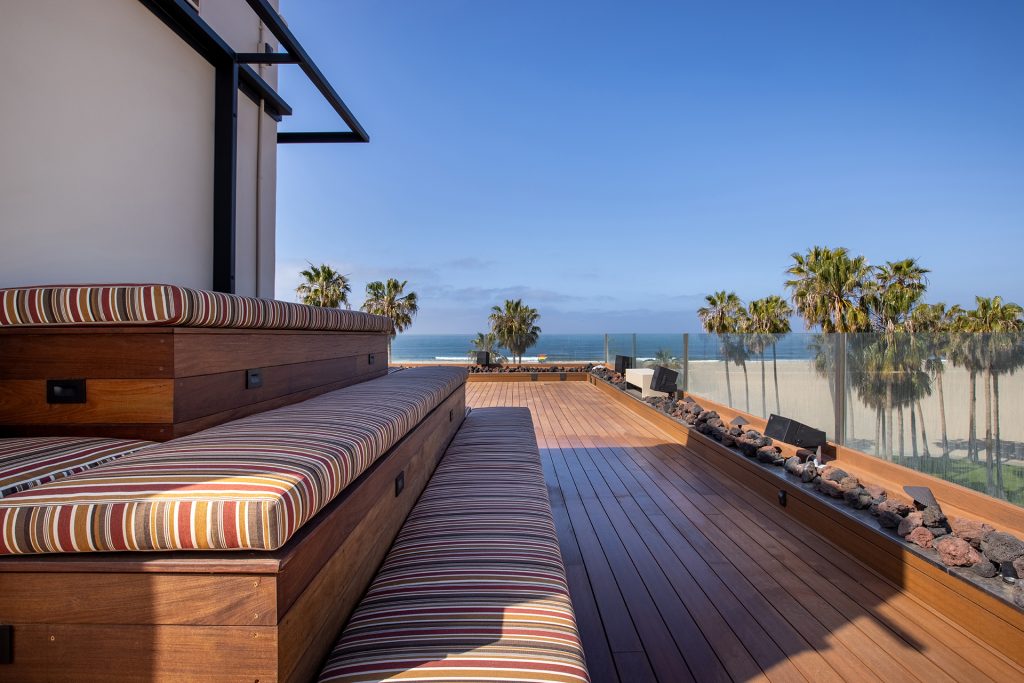
It is worth clarifying that when we refer to traditional wood decking, this does not include tropical hardwoods like ipe or cumaru. What’s the difference? Traditional wood decking requires consistent maintenance and is more likely to rot. Instead, tropical hardwoods are noted for their high density, natural decay resistance, and durability, offering a great and durable alternative for decking projects.
PVC vs Composite Decking: A Comparision
Durability
–PVC Decking: In terms of durability, PVC decking is a wise choice, offering great resistance to rot, moisture, and pests. It is a great option for high-humidity areas or next to a water source. TimberTech’s Advanced PVC and other modern PVC decking solutions can last more than five decades while providing unequaled resistance against the elements.
–Composite Decking: Composite decking is very durable, made from wood fibers and plastic to resist weather. TimberTech’s composite boards, with four-sided polymer caps, are the best among them; they offer maximum protection against moisture infiltration and mold but still average about 25-30 years before needing replacement.
Low Maintenance
–PVC Decking: An incredibly low-maintenance option, PVC decking does not require sealing, staining, or painting. It can be cleaned with soap and water, making it perfect for busy homeowners.
–Composite Decking: Composite decking also requires minimal upkeep but might need occasional scrubbing to prevent mold, mildew, and dirt buildup. Nevertheless, it is still less labor-intensive compared to traditional wood decking such as pine, redwood, and cedar.
Price
–PVC Decking: Although you may pay more upfront for PVC decking boards, they last longer and require less maintenance, making them cost-effective in the long run.
–Composite Decking: Typically offered at a lower initial price point, composite decking is an appealing option for cost-conscious projects. Even with the lower cost, it still provides great strength and aesthetic appeal.
Aesthetic Choices
–PVC Decking: Thanks to improvements in manufacturing, PVC decking now comes in many colors and realistic wood grain patterns. For instance, TimberTech offers ultra-realistic wood grain designs that fit seamlessly with your outdoor aesthetic.
–Composite Decking: Composite decking is popular because it comes in a wide variety of colors and textures to match any taste, offering extra customization features for different design styles.
Environmental Impact
–PVC Decking: PVC is synthetically made, raising environmental concerns. However, some manufacturers, including TimberTech, are incorporating recycled materials in the production of PVC, which benefits the environment and may appeal to homeowners torn between real wood and composite materials.
–Composite Decking: While often considered greener due to its use of recycled wood fibers and plastics, composite decking has a significant drawback: it is neither recyclable nor compostable, according to an article published in Treehugger. This creates waste, including installation by-products like sawdust and scrap, that inevitably end up in landfills, posing environmental challenges.
When to Choose PVC or Composite Decking
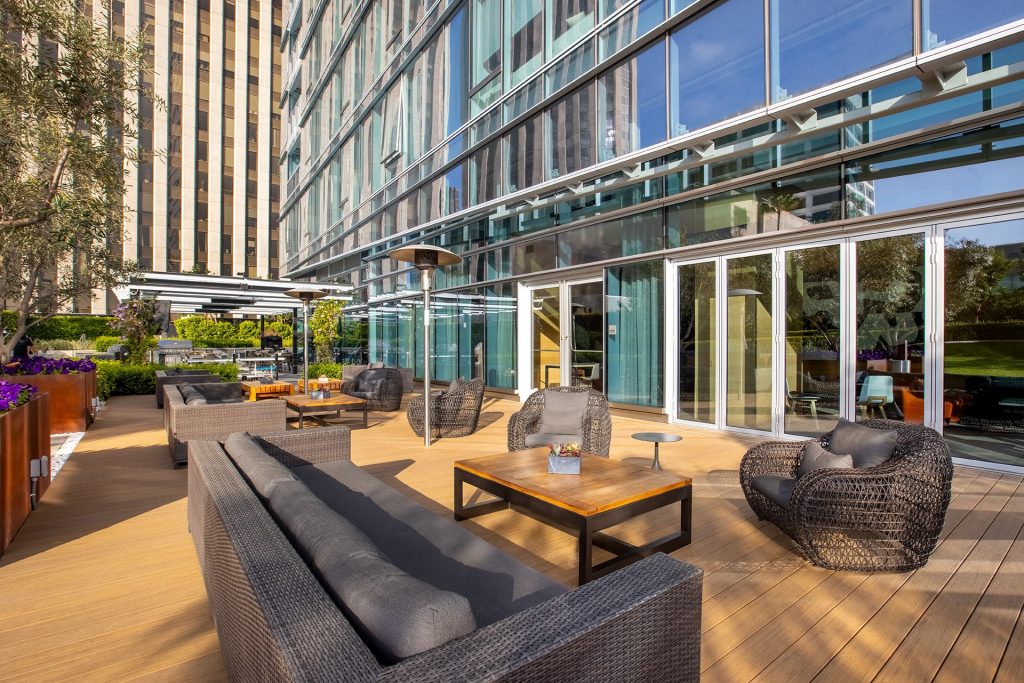
–Choose PVC Decking: If your deck is located in a very moist environment, you want a deck that will last 50-plus years with the least amount of maintenance. PVC decking offers the best durability and resistance to rot, insects, or mildew.
–Choose Composite Decking: If you want a more affordable option with the appearance of wood, value a spectrum of design choices, and prioritize environmental sustainability through the use of recycled materials.
Summary: What Is Best for Your Project?
The best choice between PVC vs composite decking depends on your needs, budget, and design preferences. At Brazilian Lumber LA, we proudly stock TimberTech-Azek composite and PVC decking and siding and partner with leading brands like Trex, Deckorators, and Fiberon. For personalized advice and to explore our wide selection of decking materials, visit Brazilian Lumber’s showroom or contact our team for a free quote.

